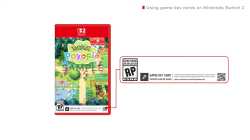Digital - You buy a license from Nintendo and download all the data. It is tied to your user account. You can then play on your registered primary console offline or have a constant online check in with various other methods.
Physical - You buy a physical item from Nintendo that contains at least version 1.0 of the game and will download the updates to the latest version if you choose to access the internet. (There are also reprint cartridges that contain later updates, another rabbit hole in itself)
Key Card - You buy a physical item from Nintendo, have to register the cartridge online then download all the data, after which you can play offline as long as it detects the cartridge.
If you're in the mindset of selling your video game cartridges because you're never going to play it again and won't come back and bitch about a used copy being more than you paid new, both the key card and physical don't really have that much of a difference.
If you're in the mindset of holding on to a game for value, the key cards become useless when the servers shut down and you don't want to be the one holding the bag.
>>58605955It's about ownership of what you purchase. The key card gives an illusion that you own a product because you have a cartridge with circuitry in your hands and a box on the shelf. It's still tied to a digital storefront with a license that they can revoke at any time. With a real physical copy containing the game data, sure there may be a problem where they figured out they only published a mono mix for the audio, some random thing the testers missed might cause a crash, and the DLC character or map might not be available, but you can still play it. I've mostly moved on to digital but those reprint cartridges I mentioned earlier are great for archival purposes, since the Pokémon games alone take up more space than the Switch internal storage.

